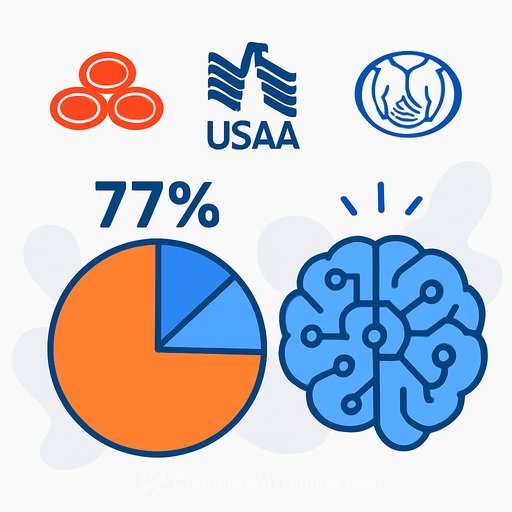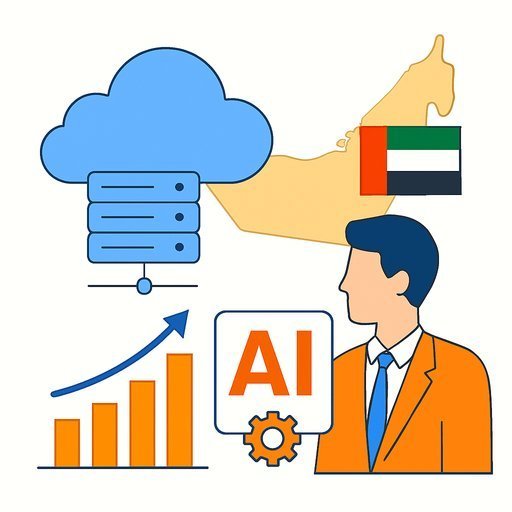Digital Health Insurance in 2025: 18% Annual Growth and Tech-Driven Disruption
Executive Summary: Key Trends and Market Outlook (2025–2030)
The digital health insurance sector is undergoing significant changes as technology, regulations, and consumer expectations converge. By 2025, digitalization will be central to health insurance, with leading insurers and insurtech firms using artificial intelligence (AI), data analytics, and cloud platforms to optimize operations, personalize products, and improve customer engagement.
Both established insurers like Aetna, Cigna, and UnitedHealth Group and newer entrants such as Oscar Health and Alan are advancing digital-first models. These companies focus on seamless policy management, claims automation, and telehealth integration, positioning themselves to capture market share through superior user experience and operational efficiency.
Key trends shaping the market from 2025 to 2030 include:
- AI and Automation: AI will be widely adopted for underwriting, fraud detection, and claims processing, reducing costs and improving accuracy.
- Telehealth Integration: Insurance products increasingly include telemedicine services, granting policyholders access to virtual care and remote monitoring.
- Data-Driven Personalization: Wearables and health apps enable dynamic pricing and wellness incentives, encouraging preventive care.
- Regulatory Evolution: Updated data privacy, interoperability, and digital onboarding rules create new opportunities and compliance challenges.
The digital health insurance market is set for steady growth, driven by innovation, scaling of digital capabilities, and adaptation to regulatory and consumer changes.
Market Size, Growth Rate, and Forecasts
The global digital health insurance market is estimated at tens of billions of dollars in 2025, with a projected 18% compound annual growth rate through 2030. This expansion is fueled by digital platform adoption, regulatory support, and shifting consumer behavior.
Oscar Health and Alan are examples of digital-first insurers demonstrating rapid growth by simplifying enrollment, streamlining claims, and enhancing member engagement. Traditional insurers like Aetna and Cigna are accelerating digital transformation, investing in apps and virtual care integration to improve customer experience and efficiency.
The Asia-Pacific region shows fast adoption, with companies like Ping An Insurance and Acko General Insurance leveraging AI and telemedicine to broaden access.
Regulatory initiatives supporting digital onboarding and data privacy will further drive innovation in personalized products and value-based care models, cementing digital health insurance as a key component of global healthcare.
Regulatory Landscape and Compliance
In 2025, regulations are evolving to address technology advances and AI integration in health insurance. The European Union’s Digital Operational Resilience Act (DORA) and GDPR set strict requirements for cybersecurity and data privacy, requiring insurers to invest in IT infrastructure and compliance.
In the U.S., the Centers for Medicare & Medicaid Services (CMS) mandates digital access to health records and standardized APIs under the 21st Century Cures Act, pushing insurers like UnitedHealth Group and Cigna to enhance digital transparency and personalization.
Asia-Pacific regulators are promoting digital-first insurance models while tightening rules on online sales and data security, as seen with India’s IRDAI and China’s CBIRC.
Global standards for AI ethics, algorithmic transparency, and data flows are developing through organizations like the International Association of Insurance Supervisors (IAIS). Insurers that proactively adopt compliance technology and transparent data practices will maintain competitive advantages.
Technology Innovations: AI, Machine Learning, and Automation
AI, machine learning (ML), and automation are reshaping health insurance operations in 2025. Insurers use AI to automate claims adjudication, detect fraud, and improve underwriting accuracy by analyzing data from health records and wearables.
Automation enhances customer service through AI-driven chatbots and virtual assistants, providing 24/7 support and freeing human agents for complex tasks.
Predictive analytics identify at-risk members and enable early interventions by integrating telehealth and remote monitoring data. UnitedHealth Group’s Optum division exemplifies this approach, combining AI analytics with care management to improve outcomes and reduce costs.
Generative AI models are expected to further streamline claims processing and regulatory compliance. Interoperability standards such as HL7’s FHIR promote seamless data exchange across insurers, providers, and patients. Balancing innovation with privacy and transparency remains essential.
Telemedicine Integration: Claims, Underwriting, and Customer Engagement
Telemedicine is transforming claims processing by enabling faster, more accurate adjudication. Insurers like Oscar Health and Elevance Health integrate telehealth platforms into member portals, simplifying virtual consultations and claim submissions. This reduces fraud and accelerates reimbursements.
Underwriting incorporates telemedicine data to refine risk assessment. AI-driven platforms analyze virtual care interactions and wearable data to improve pricing accuracy and identify early health risks.
Customer engagement benefits from telemedicine as a proactive health management tool. Providers such as Babylon Health and Clal Insurance offer 24/7 virtual care and wellness coaching, increasing satisfaction and retention. Kaiser Permanente reports over 60% of outpatient visits are now virtual, with telemedicine users showing higher satisfaction scores.
Investment in analytics, interoperable platforms, and AI-powered tools will deepen telemedicine’s role in insurance value propositions.
Data Security, Privacy, and Interoperability
With the rise of digital health insurance, protecting sensitive health data is critical. Insurers like Oscar Health and Elevance Health employ end-to-end encryption, multi-factor authentication, and zero-trust security architectures to mitigate cyber risks.
Compliance with GDPR, HIPAA, and emerging privacy laws shapes data handling and user consent management. Transparent privacy dashboards empower users to control their information.
Interoperability is essential for efficient care coordination and claims processing. Adoption of FHIR standards and API-based data sharing is growing, with insurers such as UnitedHealth Group piloting secure connections across health ecosystems.
Collaborations among insurers, tech providers, and regulators aim to establish data governance frameworks. Maintaining strong security, privacy, and interoperability is key to sustaining trust and unlocking digital health insurance’s potential.
Customer Experience: Personalization, Digital Onboarding, and Self-Service
Customer experience improvements rely on personalization, streamlined digital onboarding, and self-service tools. AI and analytics allow insurers to offer individual policy recommendations, wellness programs, and health reminders.
Digital onboarding is simplified with automated identity verification, e-signatures, and real-time eligibility checks. Oscar Health provides a fully online enrollment process, reducing paperwork and wait times.
Self-service portals enable members to file claims, track benefits, schedule telehealth, and access digital ID cards. UnitedHealth Group and Elevance Health report increased satisfaction and efficiency from these tools.
Future enhancements include deeper integration of wearables for real-time risk assessment and conversational AI for 24/7 support. Regulatory encouragement accompanies these innovations, provided privacy and accessibility are maintained.
Competitive Landscape: Leading Players, New Entrants, and Partnerships
The 2025 digital health insurance market features intense competition and collaboration. Traditional insurers like Aetna and Cigna expand digital services, integrating telehealth and AI-driven claims. UnitedHealth Group grows its digital health division Optum to lead in data analytics and virtual care.
Insurtech startups such as Oscar Health and Alan attract customers with intuitive platforms and transparent pricing. Oscar Health’s app-based plans emphasize virtual care, while Alan focuses on a fully online European model.
Strategic partnerships combine insurance with pharmacy and primary care services, as seen with Aetna and CVS Health. Collaborations with telehealth providers enhance virtual care offerings, and acquisitions of startups broaden service portfolios.
Tech giants like Apple and Google are exploring digital health insurance pilots, signaling growing overlap between technology and insurance sectors.
Challenges and Risks: Cybersecurity, Fraud, and Regulatory Compliance
Digitization brings challenges in cybersecurity, fraud prevention, and regulatory adherence. Health insurers are prime targets for cyberattacks, requiring increased investments in encryption, multi-factor authentication, and AI-driven threat detection.
Fraud risks rise with automated claims and telehealth services. Machine learning tools help flag suspicious claims and verify digital transactions. Industry groups collaborate on anti-fraud standards.
Regulatory requirements such as HIPAA in the U.S. and GDPR in Europe demand strong data protection and privacy practices. Insurers must continuously adapt to changing laws to maintain compliance and customer trust.
For insurance professionals aiming to keep pace with these developments, enhancing skills in AI, data analytics, and digital compliance will be essential. Exploring specialized training can provide valuable insights into how technology reshapes health insurance operations. Consider visiting Complete AI Training for courses tailored to insurance and technology professionals.
Your membership also unlocks:






